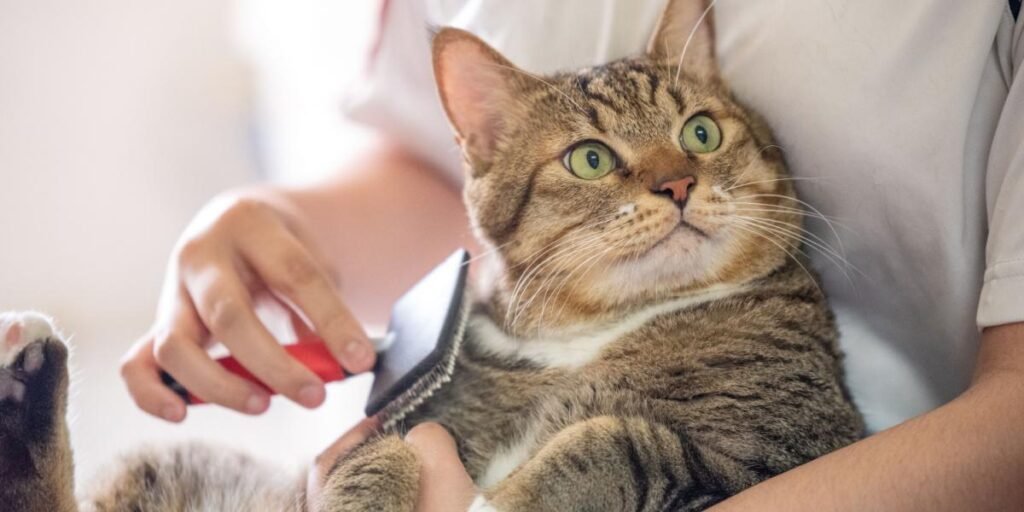Amidst changing seasons and rising pollution levels, ensuring the well-being of your feline friend becomes paramount. Here are comprehensive cat care tips to navigate the challenges and keep your pet healthy:
- Grooming Matters: Regular grooming is crucial, especially during seasonal transitions. Brush your cat’s fur to remove loose hairs and prevent matting. This practice not only helps in maintaining a sleek appearance but also reduces hairballs.
- Clean Living Space: Keep your home environment clean and free from potential allergens. Regularly vacuum and dust to minimize dust mites and allergens that may affect your cat’s respiratory health.
- Monitor Indoor Air Quality: As pollution levels rise, ensure good ventilation in your home. Consider using air purifiers to filter out pollutants. This is particularly important for indoor cats who spend the majority of their time inside.
- Nutrition is Key: Adjust your cat’s diet according to the changing seasons. Consult your veterinarian to ensure they are receiving the necessary nutrients. Staying hydrated is crucial, so always provide fresh water.
- Veterinary Check-ups: Schedule regular veterinary check-ups to monitor your cat’s overall health. Vaccinations and preventive care are essential to ward off common illnesses.
- Temperature Control: Cats are sensitive to temperature changes. Ensure they have a comfortable place to rest, away from direct sunlight or drafts. Consider providing a cozy bed or blanket during colder months.
- Interactive Playtime: Engage your cat in interactive play to keep them physically active and mentally stimulated. This not only helps in maintaining a healthy weight but also prevents behavioral issues.
- Create a Safe Outdoor Space: If your cat enjoys the outdoors, create a safe and enclosed space for them to explore. This can include a screened porch or a secure garden area, allowing them to experience the changing seasons safely.
- Monitor for Allergies: Keep an eye out for any signs of allergies, such as excessive scratching or sneezing. If you notice any unusual behavior, consult your veterinarian promptly.
- Maintain a Routine: Cats thrive on routine, so try to maintain a consistent schedule for feeding, playtime, and rest. This helps reduce stress and ensures a stable environment.
- Provide Mental Stimulation: Keep your cat mentally stimulated with puzzle toys or interactive feeders. This helps prevent boredom and can alleviate stress or anxiety.
- Emergency Preparedness: Be prepared for any unforeseen circumstances. Have an emergency kit ready, including essential supplies and your cat’s medical records.
- Regular Dental Care: Dental health is often overlooked but is crucial for your cat’s overall well-being. Brush your cat’s teeth regularly or provide dental treats to promote good oral hygiene and prevent dental issues.
- Monitor Weight and Exercise: Obesity is a common issue in cats, and it can lead to various health problems. Keep an eye on your cat’s weight and adjust their diet and exercise accordingly. Interactive toys and climbing structures can encourage physical activity.
- Understanding Seasonal Challenges: Different seasons bring specific challenges. During warmer months, be vigilant about parasites like fleas and ticks. In colder weather, watch for signs of arthritis, especially in older cats. Adapt your care routine based on the season.
- Respect Your Cat’s Space: Cats appreciate having a quiet and comfortable space to retreat to when they need a break. Respect their need for solitude, especially during times of change or stress.
- Closely Monitor Outdoor Time: If your cat enjoys outdoor adventures, supervise their time outside to ensure they don’t encounter potential hazards. Keep an eye on local plants and wildlife that could pose a threat.
- Introduce New Environments Gradually: If you’re moving to a new location or making significant changes in your home, introduce them gradually. Cats may need time to adjust, and sudden changes can cause stress.
- Watch for Signs of Stress: Cats can exhibit stress in various ways, including changes in behavior, grooming habits, or appetite. If you notice any unusual signs, consult with your veterinarian to address potential stressors.
- Stay Informed about Cat Health: Stay informed about the latest developments in feline health. Regularly check reputable sources for updates on nutrition, vaccinations, and other aspects of cat care.
Keep Your Cats Healthy

Remember that each cat is unique, and their needs may vary. Pay attention to their individual preferences and behaviors to tailor your care routine accordingly. By being proactive and attentive, you can provide the best possible care for your feline companion throughout the year.
By incorporating these cat care tips into your routine, you can ensure a happy and healthy life for your feline companion. Remember, understanding your cat’s individual needs and behaviors is key to providing the best care possible.

